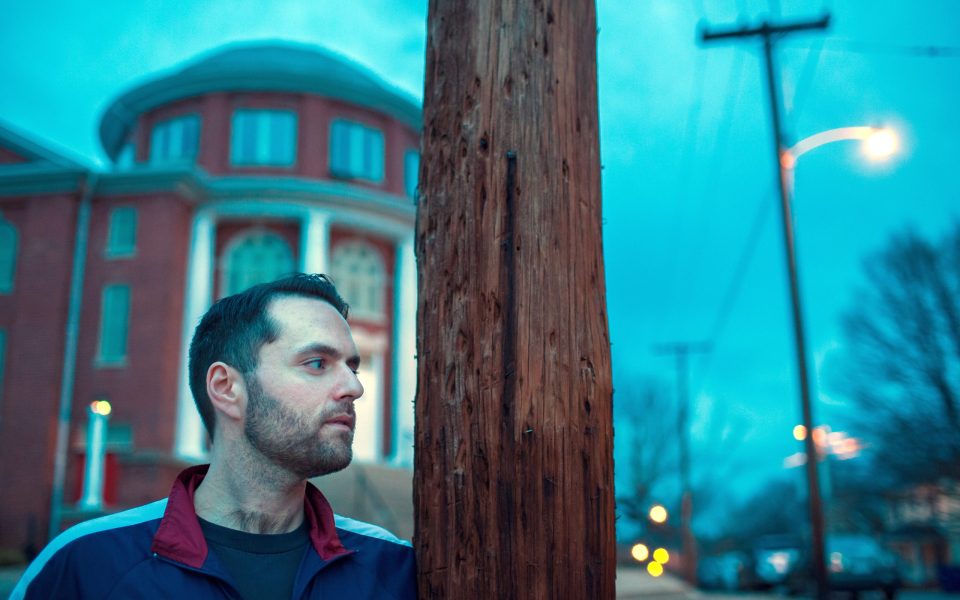The Twin City Harm Reduction Collective began operating a needle exchange out of Green Street United Methodist Church in Winston-Salem’s West Salem neighborhood in early December, following passage of a North Carolina law legalizing syringe exchanges.
“A lot of drug users will never see the healthcare system,” cofounder Colin Miller told Jonathan Michels for a story published by Triad City Beat on March 1. “They’re forgotten. Syringe exchange is a point of contact where we can at least start to give people some education and show them that there are people who care and to teach them ways to care for themselves.”
A proposed amendment to the city’s zoning ordinance could force the needle exchange to leave Green Street Church. The proposal by the Winston-Salem City Attorney’s office adds “needle and hypodermic syringe exchange program” as a use in the city’s Unified Development Ordinance, and restricts needle exchanges to areas zoned for highway business, general business, commercial or general office. City-County Planning Director Paul Norby confirmed to Triad City Beat that Green Street Church is located in an area zoned residential, which would make the existing needle exchange “nonconforming” with the city’s zoning ordinances.
The amendment would require the Twin City Harm Reduction Collective to discontinue the operation of the needle exchange at Green Street Church — as a “nonconforming” use — by June 1, 2019.
City Attorney Angela Carmon declined to comment on what prompted her office to take action on the matter, but in a memo prepared for the requested change she wrote, “Given the traffic impacts that such programs will have upon residential areas in the city it is believed to be important to create the use ‘needle and hypodermic syringe exchange program’ so that its land use impacts can be effectively addressed.”
The request is on the agenda for the public safety committee of Winston-Salem City Council, which meets in Room 239 of City Hall at 6 p.m. today. The amendment will have to go through the City-County Planning Board for a vote before it reaches the full city council for consideration.
Miller told Triad City Beat that Twin City Harm Reduction Collective received approval from the state Department of Health and Human Services to operate a needle exchange as both a fixed site and mobile exchange. In compliance with the state law, the group also submitted a safety plan to the Winston-Salem Police Department and the Forsyth County Sheriff’s Office. Miller said he believes the law allows the collective operate as a mobile exchange anywhere in the city regardless of whether the city attempts to zone the fixed site out of existence.
UPDATE, 5:06 p.m.: The request to change the zoning regulations to force the needle exchange to leave Green Street Church did not come from the West Salem Neighborhood Association.
Salvador Patiño, the president of the neighborhood association, said in a Facebook message that the stance of his organization “has been to support the program, but at the same time be vigilant of any negative effects (a lot of our members are parents, so they wanted some accountability).”
Patiño added that to date he hasn’t heard any complaints. Some of the neighbors wanted to ensure that the times the needle exchange was operating wouldn’t overlap with times when their children were being dropped off by the school bus at the corner where the church is located. Patiño said he asked parents to let him know days when the children would be released from school early so he could forward the times to Miller, but none of the parents have notified him.
Patiño said he has heard that Miller was told that Councilman John Larson is working on the neighborhood association’s behalf on the zoning change, but Patiño said the association hasn’t taken a position “since we haven’t had any issues.”
“I know there are some neighbors who don’t like having it (it is a diverse neighborhood, so we have a lot of different opinions),” Patiño said, “but I think the majority of the neighborhood doesn’t even know it is there.”
Join the First Amendment Society, a membership that goes directly to funding TCB‘s newsroom.
We believe that reporting can save the world.
The TCB First Amendment Society recognizes the vital role of a free, unfettered press with a bundling of local experiences designed to build community, and unique engagements with our newsroom that will help you understand, and shape, local journalism’s critical role in uplifting the people in our cities.
All revenue goes directly into the newsroom as reporters’ salaries and freelance commissions.


What happened to Grandfather clauses? Or did no one bother to ask?